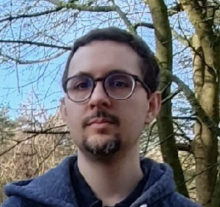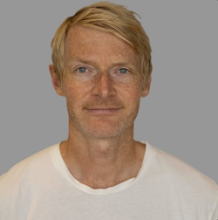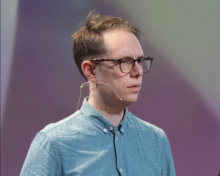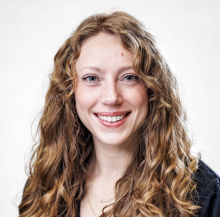Summary
Disclaimer: This summary has been generated by AI. It is experimental, and feedback is welcomed. Please reach out to info@qconlondon.com with any comments or concerns.
The presentation titled Productivity Is Messing Around and Having Fun by Holly Cummins and Trisha Gee explores the intersection of productivity and enjoyment in the workplace. The primary argument is that fun is not merely a luxury, but a necessity for sustained productivity and job satisfaction.
- Speaker Bios:
- Holly Cummins: Senior Principal Software Engineer at Red Hat, involved with Quarkus, and interested in sustainability and technical empathy.
- Trisha Gee: Java Champion and author, Lead Developer Advocate at Gradle, focused on developer productivity and career advancement.
- Key Themes and Arguments:
- Developer Satisfaction: Positively correlates with business results, with frameworks like SPACE identifying satisfaction as a critical aspect.
- The Misconception of Productivity: Traditional metrics like lines of code are flawed proxies that do not reflect true developer productivity.
- Importance of Play and Joy: Emphasizes that activities promoting joy also enhance productivity, citing historical and contemporary research, including Aristotle's adage "pleasure in the job puts perfection in the work."
- Double Win Concept: Promoting happiness can lead to increased productivity, challenging the notion of a trade-off between the two.
- Takeaways:
- Encouragement to utilize "boredom" or "dead time" for creative thinking and problem-solving.
- Reminder to implement automation to reduce tedious tasks and enhance efficiency.
- Advocates for maintaining a workplace environment that values happiness to sustain productivity without increasing stress.
The presentation concludes that enhancing workplace fun and joy can potentially lead to better business outcomes, encouraging managers and employees alike to foster an environment where creativity and enjoyment are not just permissible but vital for productivity.
This is the end of the AI-generated content.
Abstract
Developer satisfaction, developer joy, and business results are strongly correlated. Developer productivity frameworks like SPACE recognize this, with Satisfaction being a key metric. And yet - our jobs are frustrating, filled with mindless work, and free of joy. How do we fix that? Is annoying waste inevitable? Can developer performance be tuned? Are productivity measurements helping or hurting us? And how can you persuade management to invest in boredom?
Except... it's not the boss we need to convince. Sometimes, it's ourselves. We're so in the habit of running to meet deadlines, running from one problem to the next, of aiming for 100% efficiency, we're the first ones to say "I don't have time for fun". In this talk, Holly and Trisha will try to convince you that fun isn't a luxury, but a necessity.
Holly is an expert on play at work, unwise automations, and polar bears. Trisha is an expert on performance tuning, tooling and productivity. Come to this talk to find out what these topics have in common.
Interview:
What is the focus of your work?
Trisha: I'm a developer advocate for Gradle and my focus is on talking about Developer Productivity - what it is, what it is NOT, and some ways of measuring it. At Gradle, our focus is on Developer Productivity for the developer themselves, and how being productive brings you joy.
What’s the motivation for your talk?
Trisha: Holly talks about creativity and fun in development, and I talk about developer joy in the context of productivity, so we decided it would be fun (see what I did there?) to do a presentation together about how including joy and fun in the day job is important to make us better at our work.
Who is your talk for?
Trisha: Developers of all levels, and engineering leadership
What do you want someone to walk away with from your presentation?
Trisha: An understanding that developers are not code-producing machines, but humans, and that humans work better with less of a focus on "efficiently" squeezing more out of them and more of a focus on making space for creativity.
What do you think is the next big disruption in software?
Trisha: I would love to think that with better tooling, better languages, and with things like AI doing all the boring stuff, that we'll learn that the human, messy creative side of software development is the most important part.
What was one interesting thing that you learned from a previous QCon?
Trisha: I attended QCon London in 2007 and it had a PROFOUND impact on my career. Back then, I was a mid-level consultant working at an investment bank. At QCon, I learnt about BDD (from Dan North), Selenium (from Erik Doernenburg), and a lot of stuff about agile. I watched talks on the Java track, which was hosted by Simon Brown (a colleague of mine at the time), and I learnt I could be doing a lot more with the language. QCon opened my eyes to how software development could (should) be, and it also inspired me to start blogging. It helped me become a much better developer, and ultimately led me on the path of becoming a developer advocate 6 years later.
Speaker
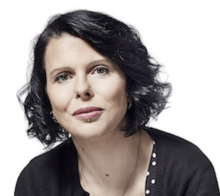
Holly Cummins
Full Stack Engineer, Building Quarkus @Red Hat, Former Lead Consultant
Holly Cummins is a Senior Principal Software Engineer on the Red Hat Quarkus team and a Java Champion. Over her career, Holly has been a full-stack javascript developer, a WebSphere Liberty build architect, a client-facing consultant, a JVM performance engineer, and an innovation leader. Holly has used the power of cloud to understand climate risks, count fish, help a blind athlete run ultra-marathons in the desert solo, and invent stories (although not at all the same time). She gets worked up about sustainability, technical empathy, extreme programming, the importance of proper testing, and automating all the things. You can find her at http://hollycummins.com, or follow her on socials at @holly_cummins(@hachyderm.io).
Find Holly Cummins at:
Speaker
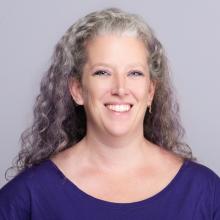
Trisha Gee
Developer Champion and Author of "Head First Java" (3rd Ed), "97 Things Every Java Developer Should Know", and "Getting to Know IntelliJ IDEA"
Trisha is a Java Champion and author. Trisha has developed Java applications for a range of industries of all sizes, including finance, manufacturing and non-profit, and she's the Lead Developer Advocate at Gradle. She has expertise in Java high-performance systems and dabbles with Open Source development.
Trisha’s exceptionally passionate about sharing things that help real developers. That might be: getting them up to speed on the latest version of Java; teaching them tips and tricks to improve their productivity; or promoting healthy technical communities across the globe. Trisha values helping all developers level up their careers and skills at every step of their journey.
Read more from Trisha in the books "Getting to Know IntelliJ IDEA", "Head First Java", “97 Things Every Java Developer Should Know” and “What to Look for in a Code Review”.







